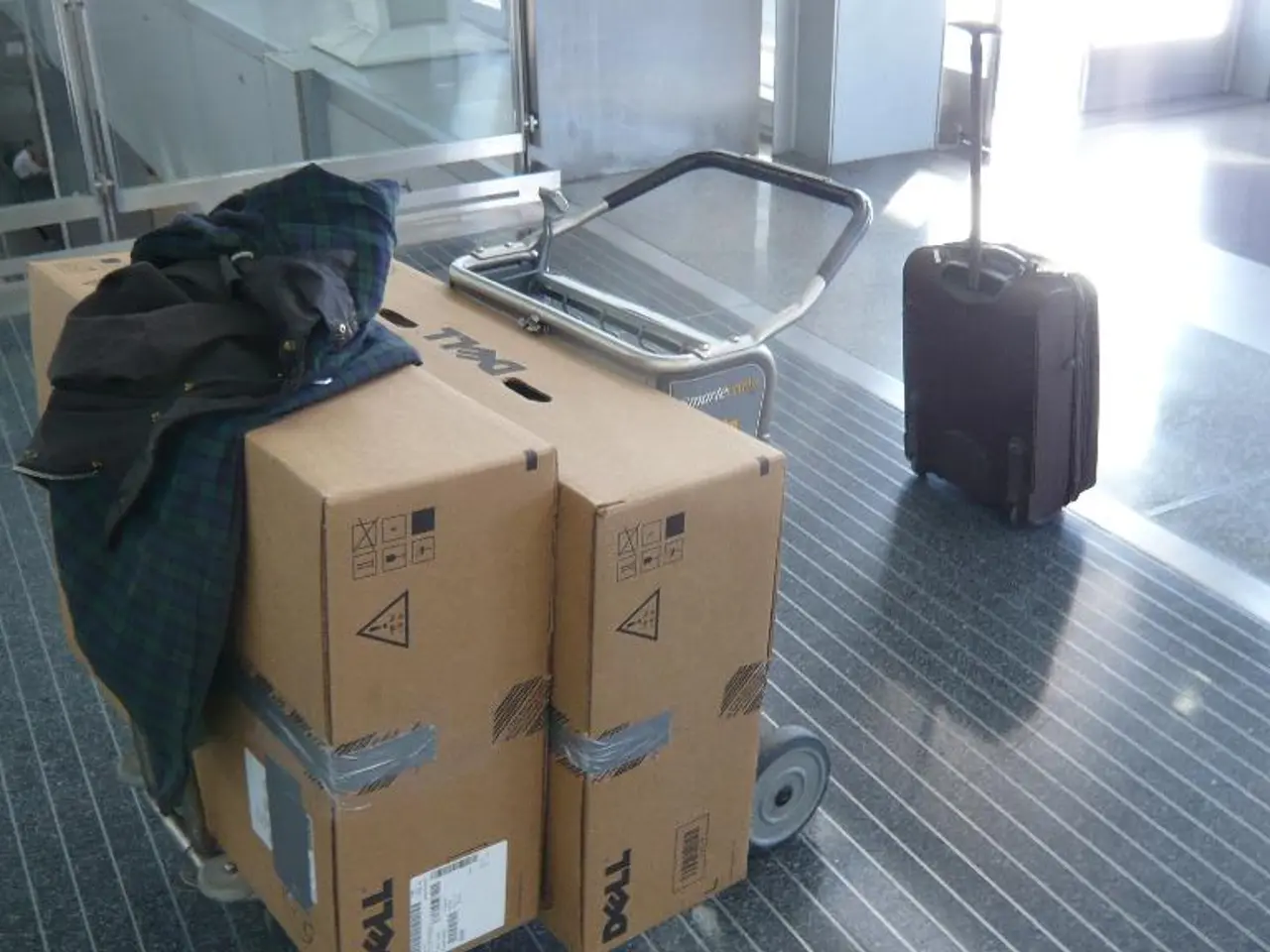EU Parliament seeks to curb excessive package deliveries by imposing a two-euro surcharge
The European Parliament has expressed support for a flat-rate handling fee of two euros per parcel imported from third countries into the EU. This levy aims to address the increased supervisory costs for customs authorities, including data checking, risk analysis, and physical controls, which have grown due to the high volume of small parcels coming from outside the EU, predominantly through e-commerce.
The proposed fee is part of a broader regulatory effort to level the playing field between EU-based sellers, who must comply with stringent safety and environmental regulations, and many third-country sellers who often bypass such rules, resulting in regulatory avoidance and market distortion. The fee would not be charged directly to consumers but imposed on the packages themselves as a cost recovery measure for customs authorities. A smaller fee option (50 cents) is also proposed for "Trust and Check Traders" who operate customs warehouses within the EU, encouraging non-EU traders to consolidate shipments and improve compliance oversight.
Regarding accountability for online marketplaces like Shein and Temu, these platforms benefit from the flood of low-cost goods shipped individually or in small parcels into the EU, often avoiding full customs scrutiny and regulatory compliance. The flat handling fee is designed to reduce this circumvention by covering the costs of enforcing safety and regulatory standards on these parcels and incentivizing better compliance practices. By making it more costly to import in small parcels without proper checks, the EU aims to hold marketplaces accountable for the safety and regulatory conformity of the products sold on their platforms.
The measure is still in the proposal and evaluation phase, with the European Commission urged to assess WTO compliance and effectiveness before full implementation. The negotiations will involve the European Parliament, the Council, and EU member states, with the aim of reforming the EU customs regime, including the handling fee for imported packages. The exact amount of the fee advocated by EU member states is not yet finalized, but the MEPs have voted to abolish the current duty-free status for goods valued at less than 150 euros.
Katarina Barley, Vice-President of the European Parliament, states that the proposed fees are a first step towards holding platforms like Temu or Shein accountable. Poor quality, toxic chemicals, and faulty electronics pose a risk to consumers due to the violation of EU safety regulations. Spot checks reveal that EU safety regulations are violated in nine out of ten cases, highlighting the need for stricter customs oversight and regulations.
The reform of the EU customs regime includes discussions on encouraging third-country traders to establish warehouses within the EU to process customer deliveries, which would further streamline customs procedures and improve regulatory compliance. As the negotiations progress, it is hoped that these measures will lead to a safer and more regulated e-commerce market within the EU.
References:
[1] European Parliament News (2023). EU Parliament supports flat-rate handling fee for third-country parcels. [online] Available at:
[2] European Commission (2023). Proposal for a Regulation of the European Parliament and of the Council on the import of goods into the Union. [online] Available at:
The proposed flat-rate handling fee, regardless of whether it is two euros or 50 cents for "Trust and Check Traders," is designed to apply to parcels imported from third countries into the EU, serving as a means to finance increased customs supervision and encourage better compliance in the industry, especially among online marketplaces like Shein and Temu. The fee, part of a broader regulatory effort in conjunction with politics and general-news, aims to hold these platforms accountable for the safety and regulatory conformity of the products they sell.




